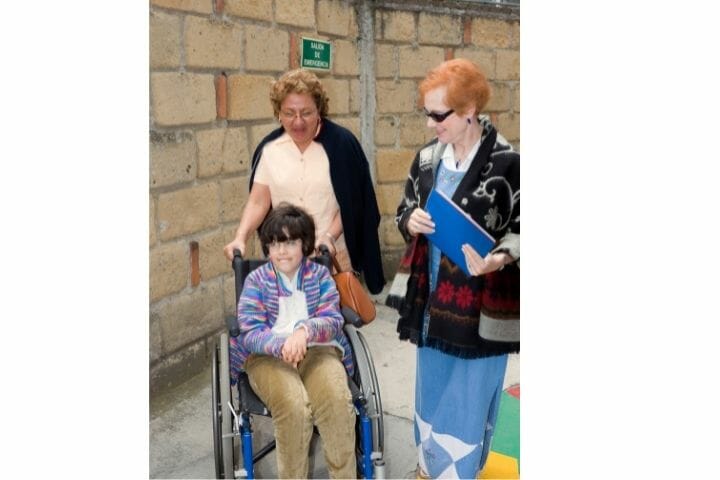Being part of the sandwich generation is extremely stressful, both mentally and financially. Go through this guide to help negotiate this stressful time in your life.
Contents
Are you taking care of your children as well as your elderly parents? If yes, then you are a member of the Sandwich generation.
Adults in the sandwich generation usually have kids at home or older children fresh out of the nest but who still need financial support.

They also have aging parents who need special care and almost 24 hours assistance. Both the age groups need your financial and emotional support. Again your career, health, and hobbies also demand your attention.
It adds a lot of stress and anxiety, and the pandemic isn’t helping. You need a bit of time for yourself every day to focus on your health or do something relaxing and entertaining. Although it seems complicated to manage everything, it is not impossible.
You can take the help of respite care or involve your children in helping you in caring for your old parents. This article discusses the sandwich generation and lists different ways to reduce the burden of caring for both aging parents and kids simultaneously. Continue reading the article for more information.
What Is the Sandwich Generation?
The sandwich generation refers to middle-aged adults who need to care for both their children and aging parents. Having children in the late 40s and an increased life span has contributed to the sandwich generation.
In the early 20th century, parents used to have children at the age of 20-25, and at that time, their parents were around the age of 40 and did not need any special care for treating their health. But today, parents have children after the age of 40, and their parents are around the age of 60. So they have to care for both the aging parents as well as the children.
Their aging parents may need assistance in daily activities like bathing, feeding, dressing, getting in and out of bed, and the smallest of things. You even have to manage their medication, take them to the doctor at the correct time, cook meals separately for them. Simultaneously you have to support your children both mentally as well as financially.
Caring for people with different needs makes your life stressful. You start putting aside all your hobbies, jobs and cut relations from the outside world to focus on your loved one.

Demographics Of Sandwich Generation
According to a Pew Research Center study, one in seven Americans between age 40 and 60 are assisting their children and older parents financially.
The added pressure of managing career and personal issues, saving money for retirement, and contributing money for the needs and wants of parents and children leads to a lot of emotional and financial stress to individuals in the sandwich generation.
Carol Abaya, an expert on aging and parent care issues, categorizes the sandwich generation into three types:
#1. Traditional Sandwich Generation
Adults between 40 and 50 years are usually sandwiched between their old parents and adult children and often face financial challenges.
#2. Club Sandwich Generation
There is a time in your life when you are caring for all three: your parents, your children, and your grandchildren. This typically happens in your 50s and 60s when you are still earning, your children are still making a career for themselves, and have just started out a family.
There is another angle to this: the adults in their 30s who are caring for their own children, their parents, and even their grandparents at the same time.
#3. Open-Faced Sandwich Generation
Young adults taking care of many older adults in any way (not specifically parents) but who do not have kids as of now are part of the open-faced sandwich generation.
Financial Problems Of Sandwich Generation
The adults in the sandwich generation spend almost $10,000 and 1350 hours on their aging parents and children every year. Children usually require more money and capital-intensive care, whereas aging parents need more time and labor-intensive care.
Adults of the sandwich generation face a substantial financial burden. On average, 48 percent of the adults are providing financial support for growing children, whereas 27 percent are the primary support. Twenty-five percent of these are also caring for their parents financially.
Some adults face financial problems every day because they have to support three generations, i.e., their old parents, immediate family (i.e., their spouse), and their children.

Challenges Faced By Women Sandwich Generation
Becoming a part of the sandwich generation affects your career, personal health, and financial status. It affects both men and women, but women are the ones who do the more labor-intensive role of primary caregiver.
In other words, men support the family financially, whereas women support both emotionally and physically. Women have to bathe, dress or feed their aging parents, and clean the home.
It affects your time, i.e., you will find no time for your relaxation, hobbies, and most importantly, your career. This is one of the reasons behind income inequality and the lower participation of women in the workforce.
Taking care of people of two generations is a time-consuming task. When all these tasks take a heavy toll, you are at high risk of mental health problems. Women are more likely to suffer from anxiety and depression because of this reason.
Again, both men and women are at high risk of losing their career development. They may be at the peak of their career but have to step down to care for aging parents and their children.
These struggles often develop strong feelings of stress, burn out and depression. The sandwich caregivers cannot understand how to manage their time between their aging parents, children, family work, and personal well-being. Another challenge you may face is that you don’t have sufficient time to ensure a healthy marriage.
How To Reduce Your Financial Burden?
#1. Elderly Parents
Your elderly parents may have pension or retirement savings which they can use for their treatment and health care. They may be enrolled in Medicare which helps in reducing their medical bills and reducing your financial burden.
If this is not the case, you can take help from various non-profit organizations or government programs to financially support their health.
#2. Adult Children
You need to encourage your adult children to contribute to you financially and move towards independence.
For younger children, one way is to get them to contribute physically to the smaller physical tasks of caring for your parents, in return for which you can offer them a bit of financial restitution.

What Are The Different Ways To Reduce The Burden of Raising Kids While Caring For Old Parents?
It’s daunting to manage the care of another person. But when you have to manage the care of multiple people with different needs and wants, the stress becomes extraordinary for a primary caregiver.
Studies show that individuals in the sandwich generation usually lose at least half an hour of sleep every night to focus on their loved ones.
It leads to chronic stress, leading to long-lasting diseases like cardiovascular diseases, diabetes, high blood pressure, and others.
There is good news for the sandwich generation individuals, i.e., You are not alone.
According to the same study, 50 percent of the adults between the ages of 40-59 years have a minor or adult child at home whom they have to support and have aging parents aged 65 years and above who require a high level of care.
I have listed below a few tips that will help you take care of everyone in your family without sacrificing your health, job, and energy levels.
#1. Start Visiting Elderly Homes
You should visit long term care facilities in your local area to know which suits the best for your elderly parents.
For instance, if your parents have Alzheimer’s disease or are in the early stage of Dementia, then it’s best to move your old parents to Memory care communities or nursing homes. These communities will assist your parents in daily activities and provide meals.
They will engage your parents in constructive activities that will help develop their mental health. Almost all the memory care facilities have alarmed doors, elevators that require a code to open, and enclosed outdoor spaces so that your parents cannot go outside without permission.
Nursing homes are also one of the good options for your elderly parents. It can provide the highest level of medical care to your parents compared to other elderly homes. The nurses and licensed physicians are always there on-premises to assist your parents.
Assisted living communities are another great option for parents. They will get assistance in doing daily activities but will not get that much medical care compared to nursing homes.

#2. Make Your Home Safe And Accessible
You can remodel your home to make it easier for your parents to access their belongings and reduce trips and falls, but don’t make it a complication. Some simple changes in your home can reduce the risk of hospitalization.
I have listed a few things you can try to modify in your home.
- installing rails on toilet and bathroom
- build a ramp if needed
- install motion-sensitive lighting
- Rearrange cupboards so your parents don’t have to stand on a stool or bend their bodies.
- Rugs and mats should not be slippery.
#3. Prioritize Self Care
If you don’t allow some time in a day for your health and wellness, it can lead to caregiver burnout. It happens most of the time with primary caregivers, leaving their loved ones in the lurch.
Caring for your loved one is essential, but you need to recharge your body and mind to better take care of your parents and children. You may feel guilty about it, but it’s pretty necessary for your physical and mental health.
You can feel refreshed in the following ways.
- daily having a brisk walk
- eating balanced diet
- sleeping 7-8 hours at night
- doing yoga
- Finding ways to do exercises like weight lifting or taking stairs instead of the elevator
- You can add time for yourself to the calendar, just like essential doctor appointments for your loved one.
#4. Reprioritize Daily
Sometimes every task of your loved ones seems like a priority. It makes you confused about which tasks to focus more energy on.
It’s best to shift your priorities daily so that you can manage all the work of your loved one. You can list and classify the task into two categories, i.e., urgent and non-urgent work. It will help you figure out which one to give importance to first.

#5. Get Extra Help When You Need
Consistently taking care of your loved one may thin your compassion and patience towards your loved one. You need a break so that you will get time for yourself.
You do so much for your loved one. So you have the right to receive help appropriately from other family members. People can provide respite care within the household because they know the best what your loved one needs and wants. But if they cannot help, it’s best to look outside for respite care.
Respite care is an option in which you will get more time to spend time with your spouse, attend extracurricular activities, go for bible study, attend religious events or spend quality time with your children. You can even continue your job by taking advantage of respite care services. The respite care can be just an afternoon or a few days a week.
You can contact home care agencies for the respite care provider. A trained respite care provider will come to your house and provide support and care to your loved one. You can choose a respite care provider either independently or through an agency.
Choosing a provider yourself may not cost you much. Still, you have to handle other issues like checking all the documents and doing a thorough background check, including criminal record, first aid certification, DMV record, and various others.
Again, you need to provide training to the provider if he is not experienced regarding handling the care required by your old parents.
You can also take the help of outside agencies like assisted living communities or adult day care centers and keep your elderly parents for a few hours to spend time for yourself or do essential things like paying bills or visiting the doctor and others.
It can also be helpful for your elderly parents. A professional caregiver will handle them. It will be an opportunity for your parents to indulge in certain pretty good activities for their bodies and mind. They will be able to talk with other residents in communities, increasing their social interaction.
#6. Try To Be Gentle With Yourself
Being a member of the sandwich generation adds a lot of tremendous pressure to your mind. But you need to be gentle and compassionate with yourself and forgive things that you cannot do best for your loved one.

#7. Share Your Feelings
You may think it’s a good idea to keep your challenges bottled up, but it can do more harm to your body and mind. If you don’t want to talk about day in and day out challenges because of the fear that they won’t understand you, then it’s better to connect with caregiver support groups. It will be an opportunity to connect with other caregivers going through the same situation as yours. You will feel that you are alone in this challenging time.
#8. Try To Say Sometimes No
Sometimes you are asked to do certain things when tired or sick. It will be fine to say no at that time to preserve your energy.
Remember, time and energy are the most valuable resources. You often have more responsibilities on your plate than you imagine, and you feel everything needs to be managed to perfect standards. It’s okay to leave some responsibilities on the plate and have time for yourself or rest, which is essential for your body and mind.
#9.Involve Your Children In The Process
Children usually remain alert about what is happening all around the home and their grandparents. You may try to keep the majority of the things out of their world, but they sense that the duties and responsibilities overstretch you.
In such cases, adult children cannot understand what to say or help you. If I talk about minor children, they are concerned and worried about their grandparents but feel helpless.
You need to have open communication with your children. The more open and communicative your family members regarding the challenges you face, the more supportive they become in the toughest times. If you have adult children, you can involve them in caring for their grandparents.
#10. Take a Few Steps Back
Whenever your aging parents have Dementia or other mental disorder, they can no longer do such things they used to love previously.
It’s better at that time to take a few steps back and imagine as if you are meeting your parents for the first time. It will help you in finding newer ways to connect with your parents.

Wrap Up
Multigenerational caregiving is quite challenging for adults. The adults of the sandwich generation face financial, physical, and mental challenges. You can follow the above tips to reduce some of your burden in caring for your aging parents and children.
However, despite all these difficulties, multigenerational caregiving leads to strong support systems. The children raised in the sandwich generation get time to spend both with their parents and grandparents.
I hope this article has given you the right information that you need to negotiate being part of the sandwich generation. If you have queries about the content, you can drop us a quick word in the comments section, and we will get back to you as quickly as we can.
If you liked the ideas presented here, please don’t forget to share this article with someone searching for this information. Your shares and likes may help someone who is in need of guidance and support at this crucial time in their life.
